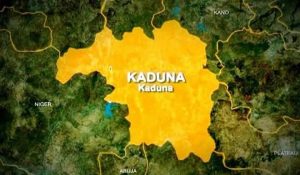
Repentant bandits in Kaduna State have committed to a peace agreement facilitated by the state government, offering hope for lasting tranquility in the once-violence-plagued areas of Birnin-Gwari, Buruku, and Sabon Birni.
During a peace dialogue on Saturday, representatives of the bandits, including Fulani leaders, expressed remorse for their actions and sought forgiveness from both the government and affected communities. They also appealed for societal reintegration and access to education for their children.
A Fulani elder representing a notorious bandit leader, Jan Bross, expressed gratitude for the peace initiative and called on Fulani leaders nationwide to encourage peaceful coexistence.
Repentant bandits, such as Ibrahim Bokolo and Muhammadu Lawali, praised the agreement as genuine and transformative. Bokolo urged local vigilantes to support the initiative, while Lawali described newfound freedom and hope for the community’s future.
The reopening of the Birnin-Gwari cattle market, shut down for 12 years, has revitalized economic activities. Farmers are now preparing for the planting season, with previously inaccessible land becoming usable again.
Malam Mustapha, a local farmer, remarked, “We now see each other as brothers. The Fulani and Hausa are working together again.”
The Kaduna State Government, alongside federal agencies, established a Peace and Reconciliation Committee comprising government officials, Fulani and Hausa community leaders, and other stakeholders to sustain the peace.
Coordinator of the initiative, Zubairu AbdulRauf, expressed optimism that the model could serve as a blueprint for resolving conflicts in other regions.
“For over a decade, this market was deserted. Today, it is bustling with life. We are grateful to Almighty Allah and the government,” said Sarkin Zango of Birnin-Gwari, Hambali Muhammad.
The ongoing peace efforts mark a turning point for Kaduna communities, offering a path forward after years of unrest.
Peoplesmind
